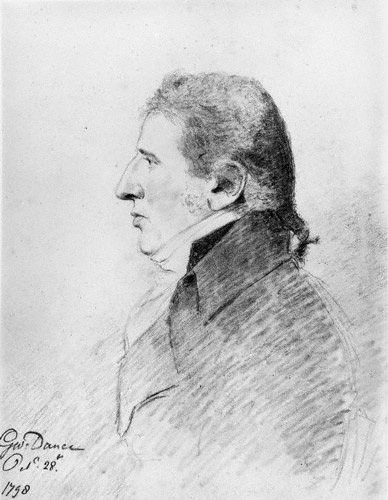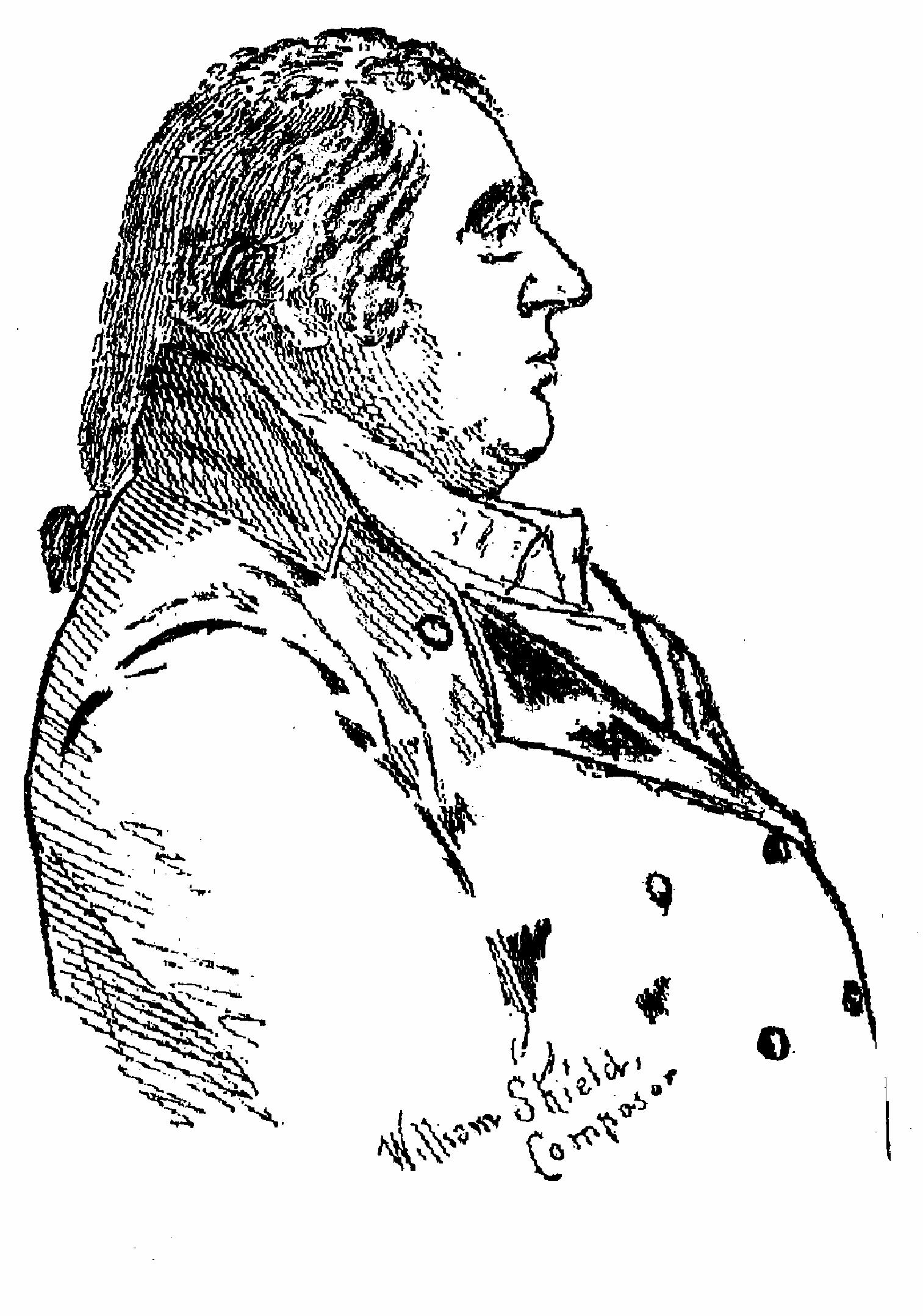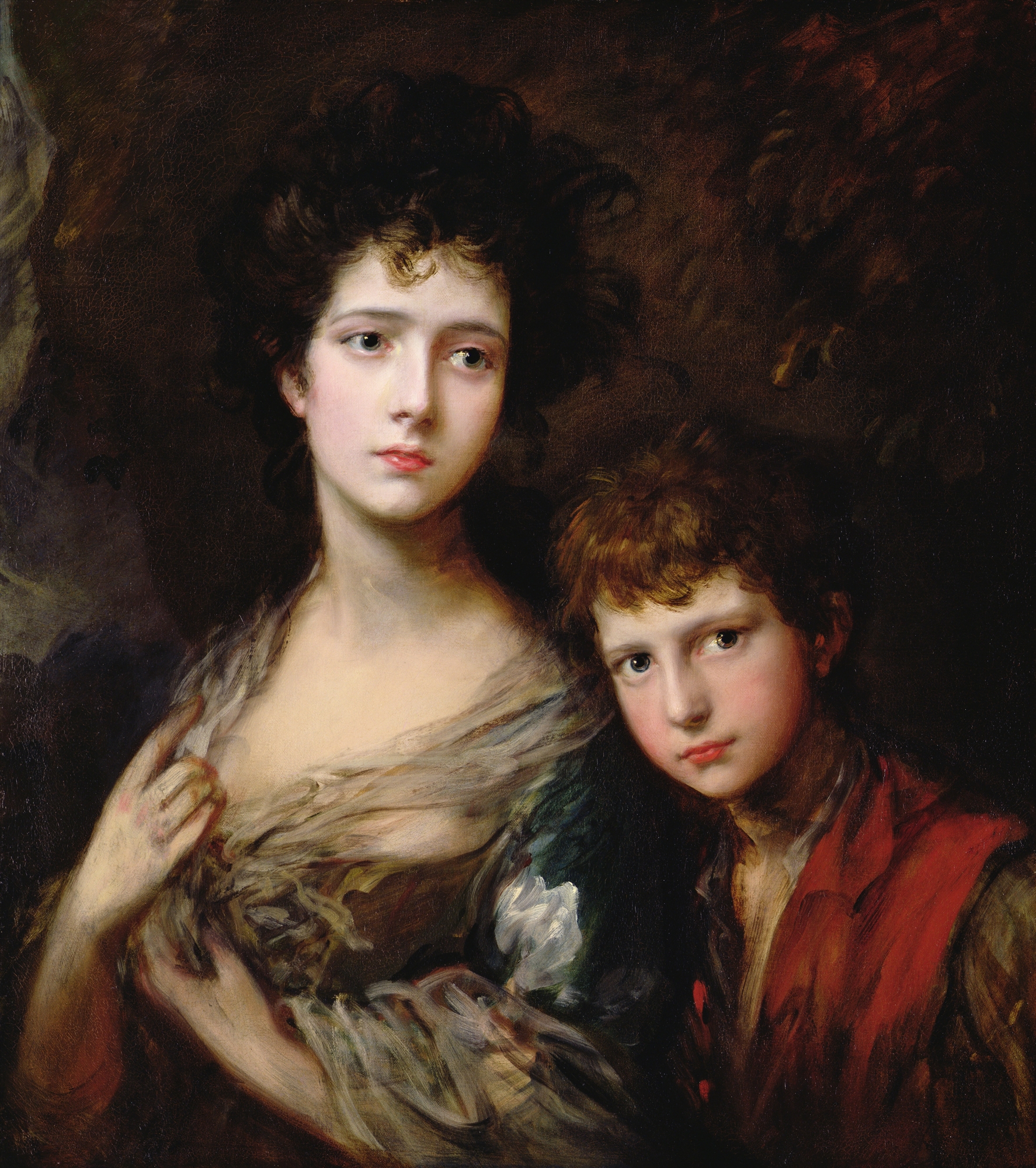|
Charles Incledon
Charles Benjamin Incledon (pronounced 'Ingledon') (1763–11 February 1826, Worcester) was a Cornish tenor singer, who became one of the foremost English singers of his time, especially in the singing of English theatre music and ballads in which he was considered without rival. Early career Charles Benjamin Incledon, the son of a doctor in St Keverne, Cornwall, was educated at Blundell's School and as a choirboy and soloist at Exeter Cathedral, under the tuition of organist and composer William Jackson. Before his voice broke, he was accustomed to sing in the Cathedral close to impromptu audiences, and once spent three days singing aboard a naval ship at Torquay. When of age he joined the Navy, and after two years' active service his fine tenor voice was 'discovered' by Admiral Hervey during a voyage to Saint Lucia, and, being generally admired in the Fleet, won the favour of Admiral Pigot. He took part in the Battle of the Saintes against the French Fleet in 1782. Upon disch ... [...More Info...] [...Related Items...] OR: [Wikipedia] [Google] [Baidu] |
Charles Incledon
Charles Benjamin Incledon (pronounced 'Ingledon') (1763–11 February 1826, Worcester) was a Cornish tenor singer, who became one of the foremost English singers of his time, especially in the singing of English theatre music and ballads in which he was considered without rival. Early career Charles Benjamin Incledon, the son of a doctor in St Keverne, Cornwall, was educated at Blundell's School and as a choirboy and soloist at Exeter Cathedral, under the tuition of organist and composer William Jackson. Before his voice broke, he was accustomed to sing in the Cathedral close to impromptu audiences, and once spent three days singing aboard a naval ship at Torquay. When of age he joined the Navy, and after two years' active service his fine tenor voice was 'discovered' by Admiral Hervey during a voyage to Saint Lucia, and, being generally admired in the Fleet, won the favour of Admiral Pigot. He took part in the Battle of the Saintes against the French Fleet in 1782. Upon disch ... [...More Info...] [...Related Items...] OR: [Wikipedia] [Google] [Baidu] |
Theatre Royal, Bath
The Theatre Royal in Bath, England, was built in 1805. A Grade II* listed building, it has been described by the Theatres Trust as "One of the most important surviving examples of Georgian theatre architecture". It has a capacity for an audience of around 900. The Theatre Royal was built to replace the Old Orchard Street Theatre, funded by a Tontine and elaborately decorated. The architect was George Dance the Younger, with John Palmer carrying out much of the work. It opened with a performance of Shakespeare's Richard III and hosted performances by many leading actors of the time including Dorothea Jordan, William Macready and Edmund Kean. A major fire in 1862 destroyed the interior of the building and was quickly followed by a rebuilding programme by Charles J. Phipps, which included the construction of the current entrance. Further redecoration was undertaken in 1892; more extensive building work, including a new staircase and the installation of electric lighting, followed ... [...More Info...] [...Related Items...] OR: [Wikipedia] [Google] [Baidu] |
Gertrud Elisabeth Mara
Gertrud Elisabeth Mara (née Schmeling) (23 February 1749 – 20 January 1833) was a German operatic soprano. Life She was born in Kassel, the daughter of a poor musician, Johann Schmeling. From him she learnt to play the violin, and while still a child, her playing at the fair at Frankfurt was so remarkable that money was collected to provide for her. She was helped by influential friends, and studied under Johann Adam Hiller in Leipzig for five years, alongside Corona Schröter, proving to be endowed with a wonderful soprano voice. She began to sing in public in 1771, and was soon recognized as the greatest singer that Germany had produced. She was permanently engaged for the Prussian court in Berlin, but her marriage to a debauched cellist named Mara created difficulties, and in 1780 she was released. After singing in Vienna, Munich and elsewhere, she appeared in Paris in 1782, where her rivalry with the singer Luísa Todi split the public into ''Todists'' and ''Maratists''. ... [...More Info...] [...Related Items...] OR: [Wikipedia] [Google] [Baidu] |
The Beggar's Opera
''The Beggar's Opera'' is a ballad opera in three acts written in 1728 by John Gay with music arranged by Johann Christoph Pepusch. It is one of the watershed plays in Augustan drama and is the only example of the once thriving genre of satirical ballad opera to remain popular today. Ballad operas were satiric musical plays that used some of the conventions of opera, but without recitative. The lyrics of the airs in the piece are set to popular broadsheet ballads, opera arias, church hymns and folk tunes of the time. ''The Beggar's Opera'' premiered at the Lisle's Tennis Court, Lincoln's Inn Fields Theatre on 29 January 1728 and ran for 62 consecutive performances, the second-longest run in theatre history up to that time (after 146 performances of Robert Cambert's ''Pomone (opera), Pomone'' in Paris in 1671). The work became Gay's greatest success and has been played ever since; it has been called "the most popular play of the eighteenth century". In 1920, ''The Beggar's Opera ... [...More Info...] [...Related Items...] OR: [Wikipedia] [Google] [Baidu] |
Charles Bannister
Charles Bannister Comedian Charles Bannister (1738–1804) was an English actor, comedian and singer. Origins and debut Bannister was born in Gloucestershire. When he was seven his father moved to Deptford. He was possessed of 'a manly form, an ardent mind, and an uncommon flow of wit.' He a company of players who visited his neighbourhood, and aspired to their profession. At 18 he made amateur appearances in ''Romeo and Juliet'' and ''Richard III'' in Deptford. Drury Lane turned him down, but after successful work in Norwich, Ipswich and other eastern towns, Samuel Foote gave him his first London appearance in 1762 at the Haymarket Theatre, as Will Tirehack in ''The Orators'', opposite John Palmer as Harry Scamper, who also made his debut on that occasion. Bannister remained Palmer's friend thereafter with 'manly firmness and immoveable constancy'. Long afterwards, in June 1787, Palmer as manager of the Royalty Theatre attempted to present dramatic works (including ''As You Lik ... [...More Info...] [...Related Items...] OR: [Wikipedia] [Google] [Baidu] |
William Shield
William Shield (5 March 1748 – 25 January 1829) was an English composer, violinist and viola, violist. His music earned the respect of Haydn and Beethoven. Life and musical career Shield was born in Swalwell near Gateshead, County Durham, the son of William Shield and his wife, Mary, née Cash. He was first taught music by his father but, after both he and his mother died while Shield was still a child, he was apprenticed to a shipbuilder in South Shields, continuing however to study music with Charles Avison in Newcastle upon Tyne. He became a noted violinist in Newcastle's subscription concerts before moving to Scarborough, England, Scarborough to lead a theatre orchestra. In 1772, he was appointed by Felice Giardini to play violin in the opera at Covent Garden (now the Royal Opera House), and from 1773 he was principal viola, violist there. On 21 February 1776 he was in Durham, where he attended the meeting of the city's masonic lodge at the ''Marquis of Granby'' tavern. ... [...More Info...] [...Related Items...] OR: [Wikipedia] [Google] [Baidu] |
Thomas Linley The Elder
Thomas Linley (17 January 1733 – 19 November 1795) was an English bass and musician active in Bath, Somerset. Born in Badminton, Gloucestershire, Linley began his musical career after he moved to Bath at age 11 and became apprentice to the organist Thomas Chilcot. After his marriage to Mary Johnson in 1752, Linley at first supported his wife and growing family predominantly as a music teacher. As his children grew and he developed their musical talent, he drew an increasing amount of income from their concerts while also managing the assembly rooms in Bath. When the new Bath Assembly Rooms opened in 1771, Linley became musical director and continued to promote his children's careers. He was eventually able to move to London with the thousands of pounds which he had amassed from their concerts. Among Linley's students were his eight children ( Elizabeth Ann, Thomas, Mary, Samuel, Maria, Ozias, William, and Jane), as well as tenor Charles Dignum, singer and actress Anna ... [...More Info...] [...Related Items...] OR: [Wikipedia] [Google] [Baidu] |
Royal Opera House
The Royal Opera House (ROH) is an opera house and major performing arts venue in Covent Garden, central London. The large building is often referred to as simply Covent Garden, after a previous use of the site. It is the home of The Royal Opera, The Royal Ballet, and the Orchestra of the Royal Opera House. The first theatre on the site, the Theatre Royal (1732), served primarily as a playhouse for the first hundred years of its history. In 1734, the first ballet was presented. A year later, the first season of operas, by George Frideric Handel, began. Many of his operas and oratorios were specifically written for Covent Garden and had their premieres there. The current building is the third theatre on the site, following disastrous fires in 1808 and 1856 to previous buildings. The façade, foyer, and auditorium date from 1858, but almost every other element of the present complex dates from an extensive reconstruction in the 1990s. The main auditorium seats 2,256 people, mak ... [...More Info...] [...Related Items...] OR: [Wikipedia] [Google] [Baidu] |
Thomas Harris (theatre Manager)
Thomas Harris (died 1820) was an English theatre manager, who became proprietor of Covent Garden Theatre. Life His background was in business. In the autumn of 1767, with George Colman the elder, John Rutherford, and William Powell, he purchased from John Beard the patent of Covent Garden Theatre. The theatre opened 14 September 1767, with '' The Rehearsal'', in which Powell spoke a prologue by William Whitehead. Colman took on a management role, but a serious quarrel broke outbetween Harris and Colman arose during the first season, driven by the ambitions of Jane Lessingham, an actress with whom Harris lived. Colman, with whom Powell sided, barricaded the theatre, and Harris, supported by Rutherford, broke it forcibly open. Legal proceedings and a pamphlet war followed. On 23 July 1770 a legal decision of the commissioners of the Great Seal reinstated Colman as acting manager, subject to the advice and inspection, but not the control, of his fellows. Powell meanwhile had died 3 ... [...More Info...] [...Related Items...] OR: [Wikipedia] [Google] [Baidu] |
Josef Haydn
Franz Joseph Haydn ( , ; 31 March 173231 May 1809) was an Austrian composer of the Classical period. He was instrumental in the development of chamber music such as the string quartet and piano trio. His contributions to musical form have led him to be called "Father of the Symphony" and "Father of the String Quartet". Haydn spent much of his career as a court musician for the wealthy Esterházy family at their Eszterháza Castle. Until the later part of his life, this isolated him from other composers and trends in music so that he was, as he put it, "forced to become original". Yet his music circulated widely, and for much of his career he was the most celebrated composer in Europe. He was a friend and mentor of Mozart, a tutor of Beethoven, and the elder brother of composer Michael Haydn. Biography Early life Joseph Haydn was born in Rohrau, Austria, a village that at that time stood on the border with Hungary. His father was Mathias Haydn, a wheelwright who also ser ... [...More Info...] [...Related Items...] OR: [Wikipedia] [Google] [Baidu] |
Charles Dibdin
Charles Dibdin (before 4 March 1745 – 25 July 1814) was an English composer, musician, dramatist, novelist, singer and actor. With over 600 songs to his name, for many of which he wrote both the lyrics and the music and performed them himself, he was in his time the most prolific English singer-songwriter. He is best known as the composer of "Tom Bowling", one of his many sea songs, which often features at the Last Night of the Proms. He also wrote about 30 dramatic pieces, including the operas ''The Waterman'' (1774) and ''The Quaker'' (1775), and several novels, memoirs and histories. His works were admired by Haydn and Beethoven. Life and career Early life and early successes The son of a silversmith, Dibdin was privately baptised on 4 March 1745 in Southampton and is often described as the youngest child of eighteen born to a 50-year-old mother. His parents, intending him for the clergy, sent Dibdin to Winchester College, but his love of music soon diverted his though ... [...More Info...] [...Related Items...] OR: [Wikipedia] [Google] [Baidu] |
James Hook (composer)
James Hook (3 June 1746 – 1827) was an English composer and organist. Life and musical career He was born in Norwich, the son of James Hook, a razor-grinder and cutler. He displayed a remarkable musical talent at an early age, playing the harpsichord by the age of four and performing concertos in public at age six. He began performing regularly by the time he was 10 years old, including benefit concerts. He held many jobs to earn money, including teaching, composing, transcribing music and tuning keyboard instruments. Sometime between June 1763 and February 1764 Hook moved to London.McGairl, Grove Online There he became the organist at White Conduit House, Pentonville, one of the tea gardens that were popular in 18th-century London. He worked as an organist, teacher and composer, and gained a reputation for composing vocal music. He married the artist and writer Elizabeth Jane Madden on 29 May 1766, at St. Pancras Old Church. They had two sons, James (1772–1828) and Theod ... [...More Info...] [...Related Items...] OR: [Wikipedia] [Google] [Baidu] |

.jpg)





